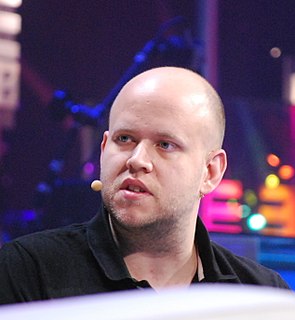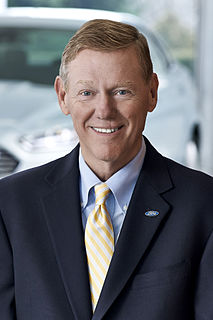A Quote by Simon Sinek
Mergers are like marriages. They are the bringing together of two individuals. If you wouldn't marry someone for the 'operational efficiencies' they offer in the running of a household, then why would you combine two companies with unique cultures and identities for that reason?
Related Quotes
Divestitures have long been the preferred remedy for horizontal mergers, where there's an overlap between the two companies. Airlines, for example, may have to sell routes or airport gates where the two airlines compete; cable operators may have to sell operations in cities where both companies operate.
'Brokeback Mountain' is a sad love story about two people who can't be together, and the reason that they can't be together is because being gay is a stigmatized thing. It would be interesting to have the same movie in which the two guys weren't in the closet and there was no shame about them being gay and they couldn't be together for other reasons. I still feel like we're a long way from that happening.
I was more intrigued by the relationship [in Felicity]; the idea of these two teenagers who were placed together. What would that be like, and what would it be like to watch that unravel. Living together, and having babies with somebody, missing out on your whole childhood, and then spending all these years with someone. I was more intrigued by that.
For acquiring companies, the excitement is almost always about where they are going - that is, their strategy for gaining greater growth and productivity. But when mergers fail, it's often because no one focused on who they are - that is, their culture, which is critical to successfully bringing different groups of people together.
What The Source becomes, in a physical sense, is almost like this particle accelerator. There's all these different, discrete voices and ideas. If you just saw two of them together perhaps it might seem completely diverse and like, "Why do you have these two people together?" But as it grows and as it speeds up, it kind of creates a larger dialogue.
The reason I loved working at Boeing was because I loved the idea of air travel as a way of bringing people and cultures together - because when we come together as people and cultures, we realize that we are not that different after all, and when we realize that we are not that different after all, the world becomes a better place.
When the study of the household (ecology) and the management of the household (economics) can be merged, and when ethics can be extended to include environmental as well as human values, then we can be optimistic about the future of humankind. Accordingly, bringing together these three ‘E's' is the ultimate holism and the great challenge for our future.



































